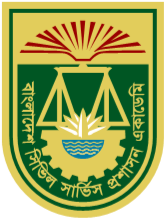Achieving Sustainable Development Goal-16 in Bangladesh
The Institutional Issues and Challenges
Keywords:
Sustainable Development Goals, Right to Information, Open Budget Session, Ward Shava, Standing Committees, Citizen’s CharterAbstract
This study intends to evaluate the success of local governments in Bangladesh in meeting the Sustainable
Development Goals (SDGs) targets by comparing them to current measures taken by the government. It also
looks at the institutional obstacles that come with implementing the SDGs. Goal 16 was created to foster peace
and create a more inclusive society. The significant thing to note here is that in the most recent UP Act of 2009,
GOB endorsed several of those pilot ideas, such as Ward Shava, Open Budgeting, and Standing Committees,
which ensure bottom-up planning at UPs. According to the Local Government (Union Parishad) Act of 2009,
several methods finally become dominant actors to promote peace, fairness, and strong institutions.To build a
framework for incorporating the SDGs into local government activities, the study adopts an exploratory
approach. Secondary data was gathered from books, articles, websites, and newspapers, among other sources.
The existing literature on SDG implementation issues, institutional weaknesses, public policy flaws, and legal
framework was examined to gain a better understanding of the data collected and to establish an analytical
methodology. To enable effective decision-making, the government, international organizations, the academic
community, and our development agencies must build new connections with local politicians and civil society.

